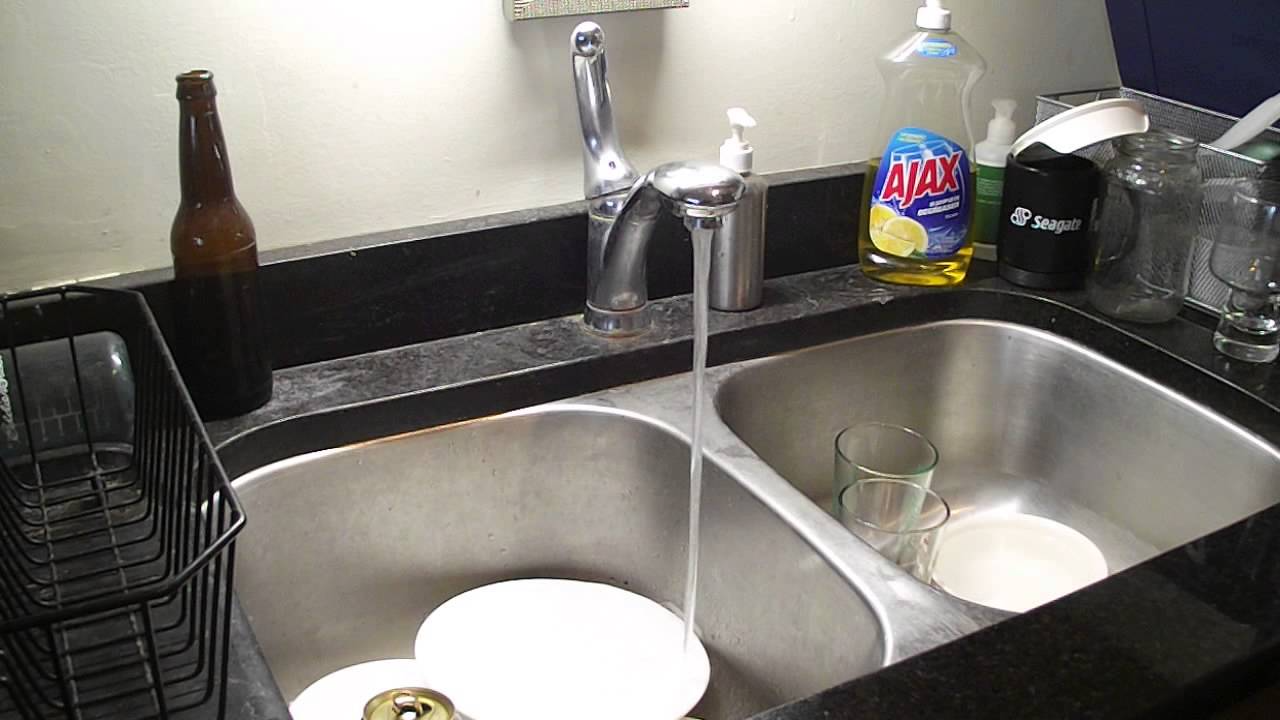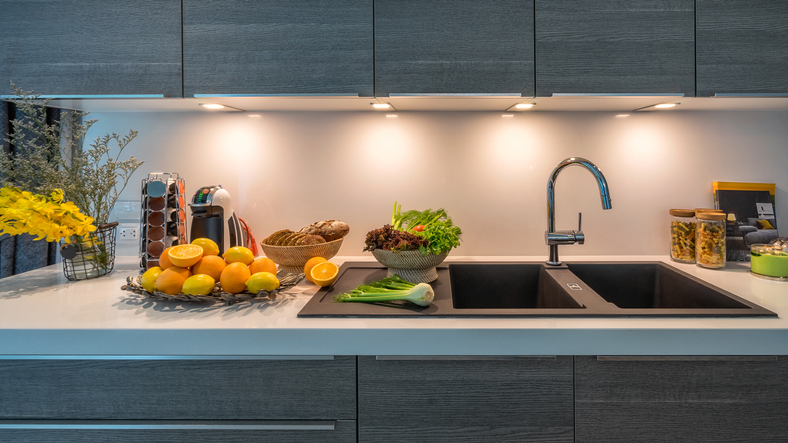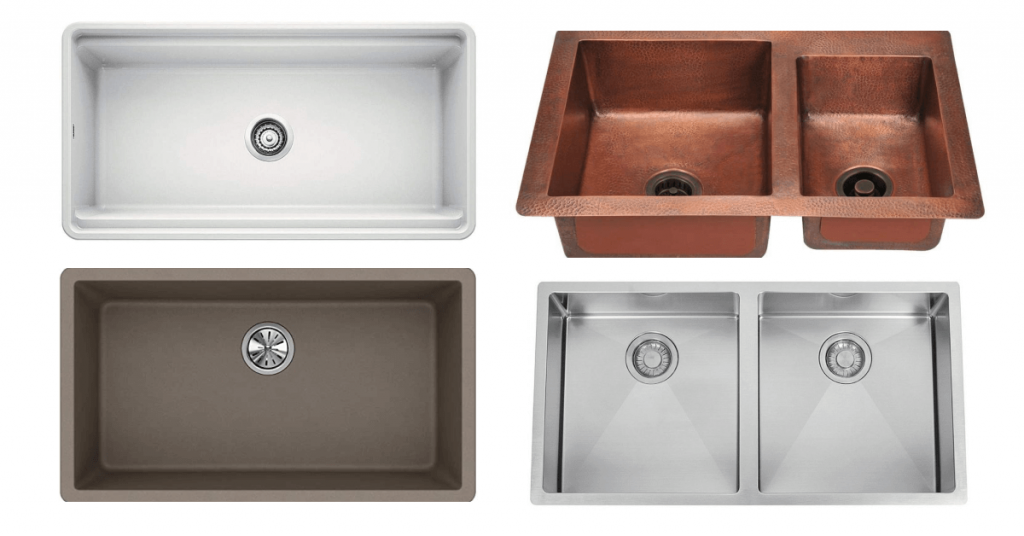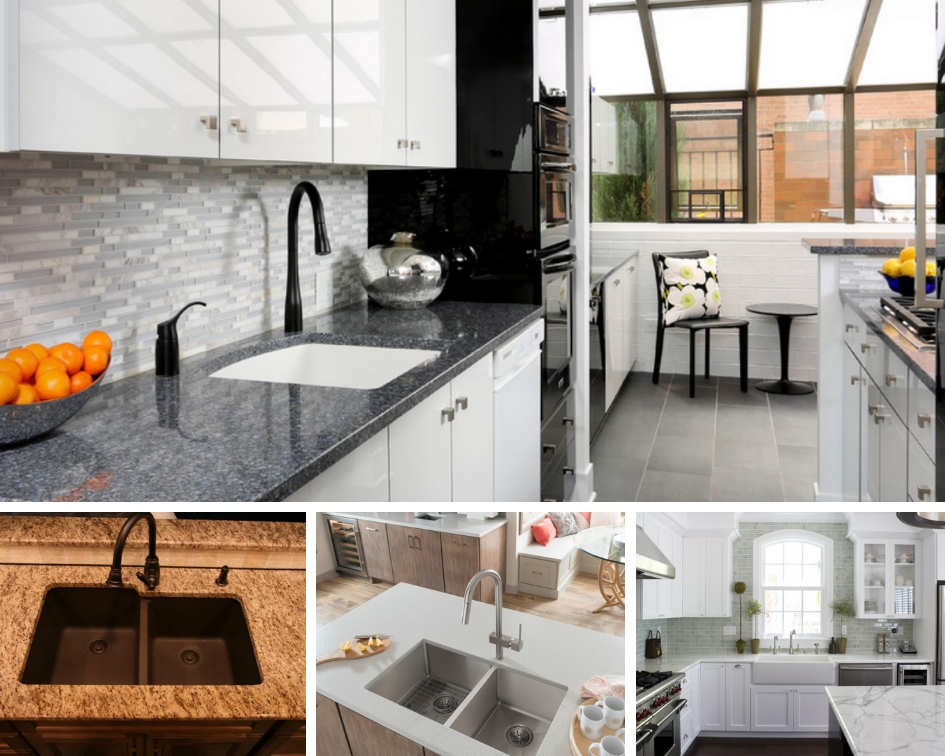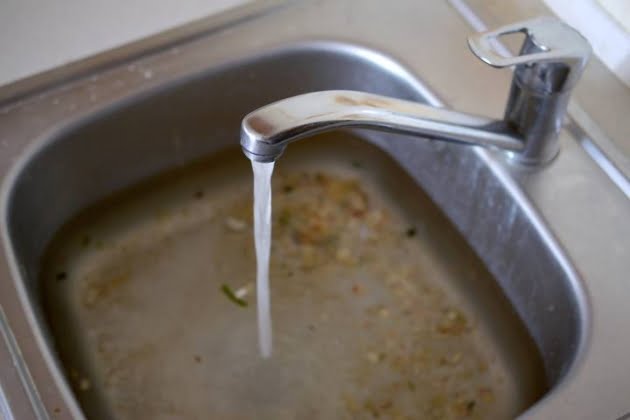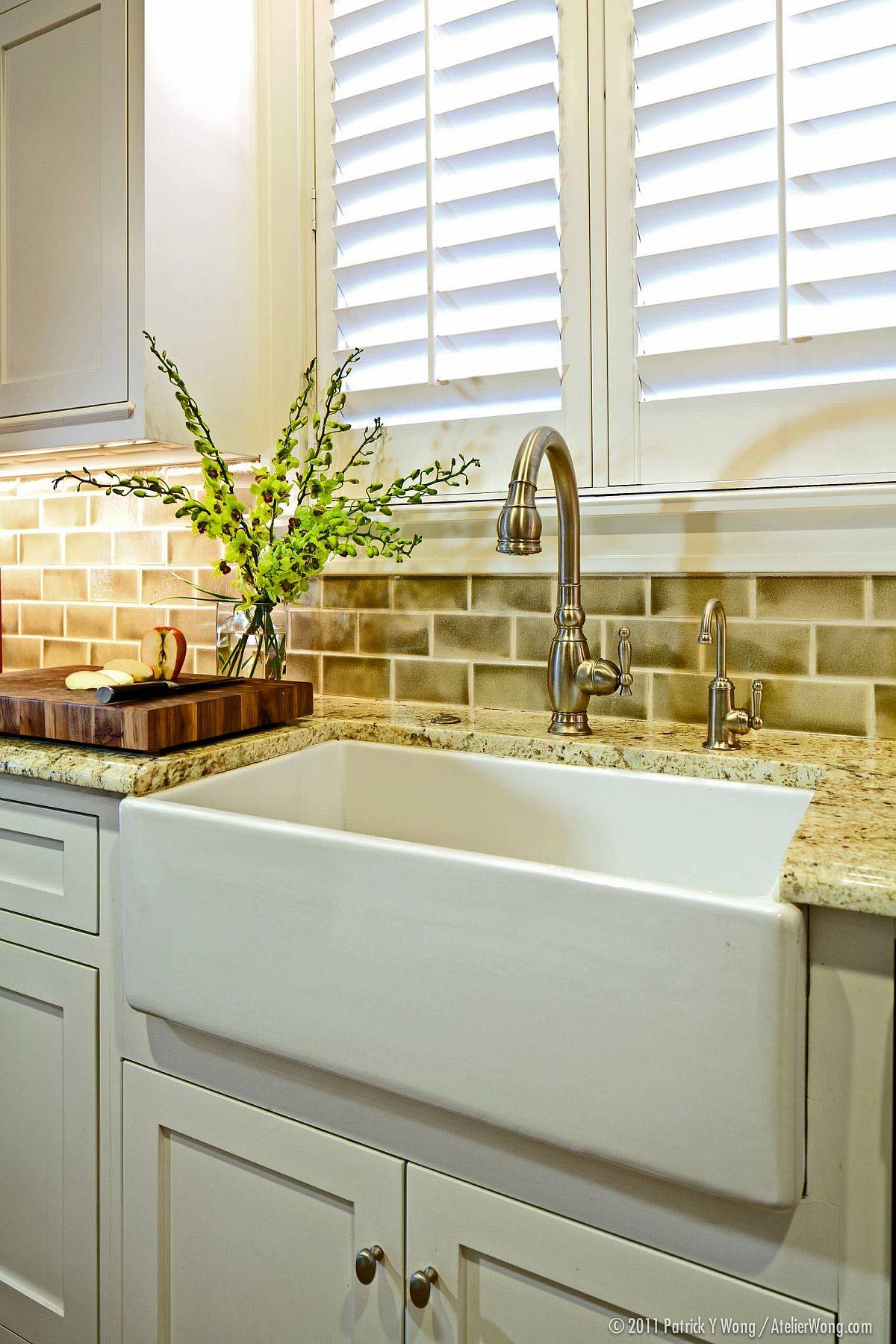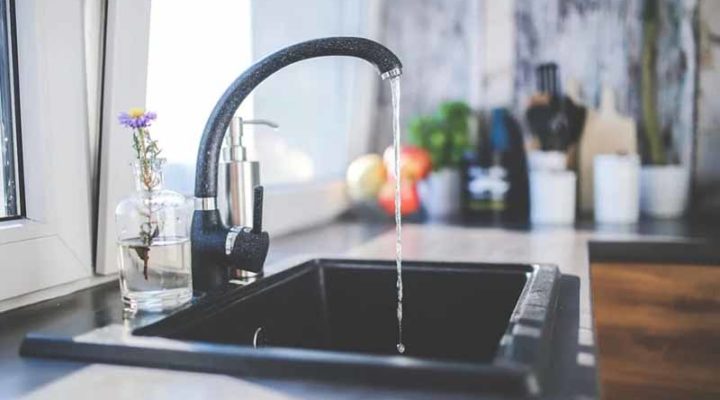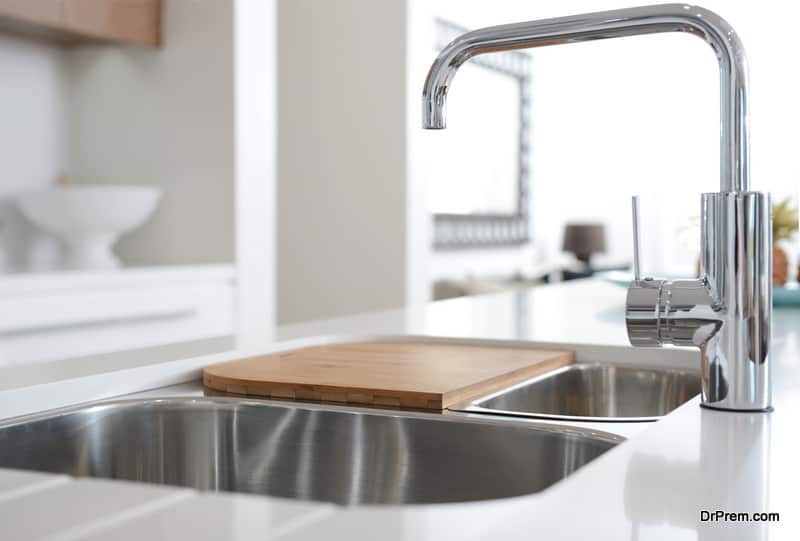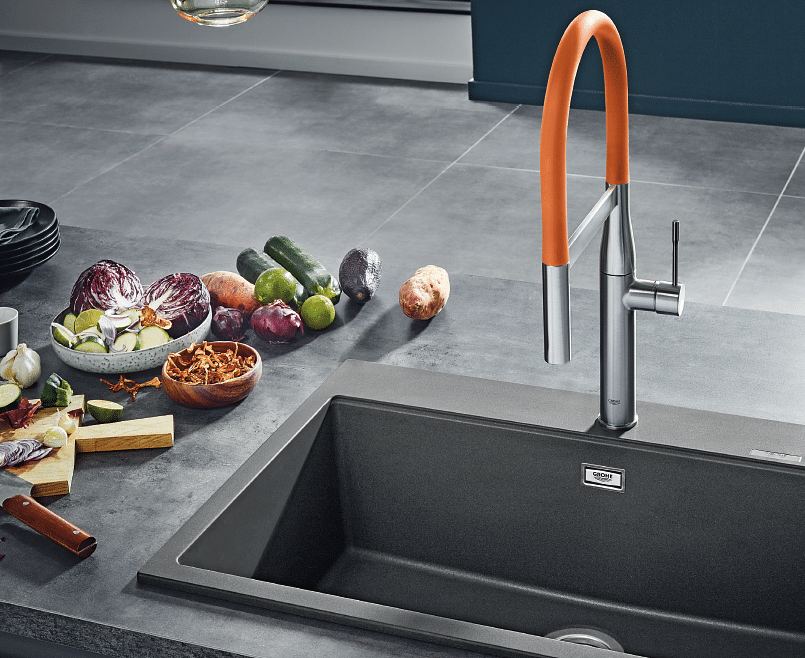If you've ever experienced a clogged kitchen sink, you know how frustrating it can be. It can disrupt your daily routine and make it difficult to wash dishes or prepare meals. But what causes these pesky clogs in the first place? One of the most common causes of kitchen sink clogs is grease and oil buildup. When cooking, these substances can easily go down the drain and solidify, causing blockages. Another culprit is food particles, especially ones that are not suitable for disposal, such as eggshells or coffee grounds. To prevent these clogs, be mindful of what you put down your sink and regularly clean it with hot water and dish soap to break down any buildup.1. Common Causes of Kitchen Sink Clogs
While prevention is always the best solution, sometimes clogs can still happen. If you find yourself with a clogged kitchen sink, there are a few things you can try before calling a professional plumber. First, try using a plunger to break up the clog. If that doesn't work, you can try using a plumbing snake to physically remove the blockage. Another option is to use a mixture of baking soda and vinegar to dissolve the clog. If all else fails, it may be time to call in the experts.2. How to Unclog a Kitchen Sink
Not all clogs are created equal. Depending on the cause, the location, and the severity, there are different types of clogs that can occur in kitchen sinks. Some of the most common types include partial clogs, where water drains slowly, and complete clogs, where water doesn't drain at all. There are also more severe clogs, such as sewer line clogs, which can affect the entire plumbing system of your home. The type of clog you have will determine the best course of action for unclogging it.3. Types of Clogs in Kitchen Sinks
If you're dealing with a minor clog, there are several DIY solutions you can try before calling a professional plumber. As mentioned earlier, using a plunger or a plumbing snake can often do the trick. You can also try using a mixture of baking soda and vinegar or a store-bought enzyme cleaner to break down the clog. Just be sure to follow the instructions carefully and use these products in a well-ventilated area.4. DIY Solutions for Kitchen Sink Clogs
If DIY solutions don't work, you may be tempted to use a chemical drain cleaner to clear your clog. While these products can be effective, they can also be harmful to your plumbing system and the environment. Chemical drain cleaners can corrode pipes and create fumes that are dangerous to inhale. They can also harm septic systems and contaminate water sources. It's best to use these products as a last resort and only when absolutely necessary.5. Chemical Drain Cleaners for Kitchen Sink Clogs
If you're dealing with a persistent or severe clog, it's best to call in a professional plumber. They have the tools and expertise to effectively clear the clog and prevent it from happening again. Professional plumbers can also inspect your plumbing system for any underlying issues that may be causing the clogs and provide solutions to prevent them in the future.6. Professional Plumbing Services for Kitchen Sink Clogs
As the saying goes, prevention is better than cure. To avoid dealing with clogged kitchen sinks in the first place, there are several preventative measures you can take. First, be mindful of what you put down your sink. Avoid pouring grease and oil down the drain, and use a sink strainer to catch any food particles. Regularly cleaning your sink with hot water and dish soap can also help prevent buildup. Additionally, scheduling regular plumbing maintenance can help catch any potential clogs before they become a bigger issue.7. Prevention Tips for Kitchen Sink Clogs
Believe it or not, the type of kitchen sink you have can also play a role in the likelihood of clogs. Different materials and designs can affect how easily debris can get trapped and how easy it is to clean. Stainless steel sinks are the most popular and are generally easy to clean. However, they can scratch easily, which can make it easier for food particles to get stuck. Porcelain sinks are less susceptible to scratches but can stain easily. It's essential to choose a sink that fits your lifestyle and cleaning habits.8. Different Types of Kitchen Sinks
If you're not sure whether or not you have a clogged kitchen sink, there are several common signs to look out for. One of the most obvious signs is slow or no drainage, but there are other indicators as well. Unpleasant odors coming from your sink, gurgling sounds, and water backing up in other drains are all signs of a clogged kitchen sink. If you notice any of these issues, it's best to address them before they become a bigger problem.9. Common Signs of a Clogged Kitchen Sink
If you're renovating your kitchen or simply looking to upgrade your sink, it's essential to choose the right one for your needs. As mentioned earlier, different materials and designs can affect the likelihood of clogs. You should also consider the size and depth of the sink, as well as the number of bowls. It's also crucial to choose a sink that fits your budget and complements the overall style of your kitchen. In conclusion, while clogs in kitchen sinks are a common and frustrating issue, there are preventative measures you can take and solutions to unclog them if they do occur. By being mindful of what you put down your sink and regularly maintaining it, you can keep your kitchen sink clog-free and functioning properly for years to come.10. How to Choose the Right Kitchen Sink for Your Home
Types of Clogs to Avoid in Your Kitchen Sink
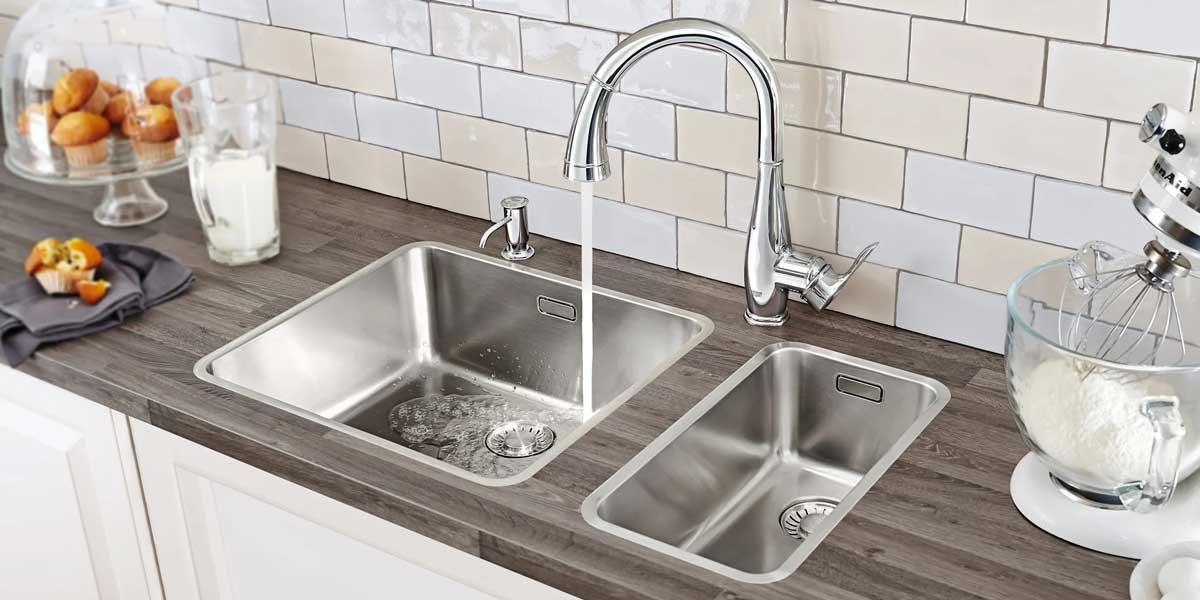
Common Kitchen Sink Clogs
 When it comes to designing a functional and efficient kitchen, the sink is often the focal point. However, a clogged kitchen sink can quickly become a nightmare and disrupt your daily routine. There are many types of clogs that can occur in kitchen sinks, and it's important to know how to prevent and address them. Here are some common types of clogs to avoid in your kitchen sink.
When it comes to designing a functional and efficient kitchen, the sink is often the focal point. However, a clogged kitchen sink can quickly become a nightmare and disrupt your daily routine. There are many types of clogs that can occur in kitchen sinks, and it's important to know how to prevent and address them. Here are some common types of clogs to avoid in your kitchen sink.
Food Waste Clogs
:max_bytes(150000):strip_icc()/kitchendoubleBasinsink-GettyImages-1098390260-420372a617b748d8a06491e6ad82d107.jpg) One of the most common causes of kitchen sink clogs is food waste. Fats, oils, and greases from cooking can build up in your pipes and cause blockages. Additionally, food scraps and debris can get stuck in the drain and cause clogs. To prevent food waste clogs, always scrape off excess food from dishes before washing them in the sink. You can also use a drain strainer to catch any food particles and dispose of them in the trash.
Keyword: food waste clogs
One of the most common causes of kitchen sink clogs is food waste. Fats, oils, and greases from cooking can build up in your pipes and cause blockages. Additionally, food scraps and debris can get stuck in the drain and cause clogs. To prevent food waste clogs, always scrape off excess food from dishes before washing them in the sink. You can also use a drain strainer to catch any food particles and dispose of them in the trash.
Keyword: food waste clogs
Soap Scum Clogs
 Another type of clog that can occur in kitchen sinks is soap scum clogs. This happens when soap residue builds up in the pipes and creates a blockage. Soap scum can also mix with other substances, like hair and food particles, to create a stubborn clog. To prevent soap scum clogs, avoid using too much soap and regularly clean your sink and drain with a mixture of hot water and vinegar.
Keyword: soap scum clogs
Another type of clog that can occur in kitchen sinks is soap scum clogs. This happens when soap residue builds up in the pipes and creates a blockage. Soap scum can also mix with other substances, like hair and food particles, to create a stubborn clog. To prevent soap scum clogs, avoid using too much soap and regularly clean your sink and drain with a mixture of hot water and vinegar.
Keyword: soap scum clogs
Mineral Buildup Clogs
 Hard water can also cause clogs in your kitchen sink. As water evaporates, minerals are left behind and can stick to the walls of your pipes, eventually creating a blockage. To prevent mineral buildup clogs, consider installing a water softener or regularly using a mixture of hot water and baking soda to clean your pipes.
Keyword: mineral buildup clogs
Hard water can also cause clogs in your kitchen sink. As water evaporates, minerals are left behind and can stick to the walls of your pipes, eventually creating a blockage. To prevent mineral buildup clogs, consider installing a water softener or regularly using a mixture of hot water and baking soda to clean your pipes.
Keyword: mineral buildup clogs
Foreign Object Clogs
:max_bytes(150000):strip_icc()/GettyImages-174841379-5a85d100ba61770036d9f06c.jpg) Sometimes, clogs can occur due to foreign objects getting stuck in the drain. These can include items like utensils, small toys, and even jewelry. To avoid these types of clogs, always be mindful of what you're putting down your sink and avoid using it as a garbage disposal. If an object does get stuck in the drain, try using a plunger or a drain snake to remove it.
Keyword: foreign object clogs
Sometimes, clogs can occur due to foreign objects getting stuck in the drain. These can include items like utensils, small toys, and even jewelry. To avoid these types of clogs, always be mindful of what you're putting down your sink and avoid using it as a garbage disposal. If an object does get stuck in the drain, try using a plunger or a drain snake to remove it.
Keyword: foreign object clogs
Conclusion
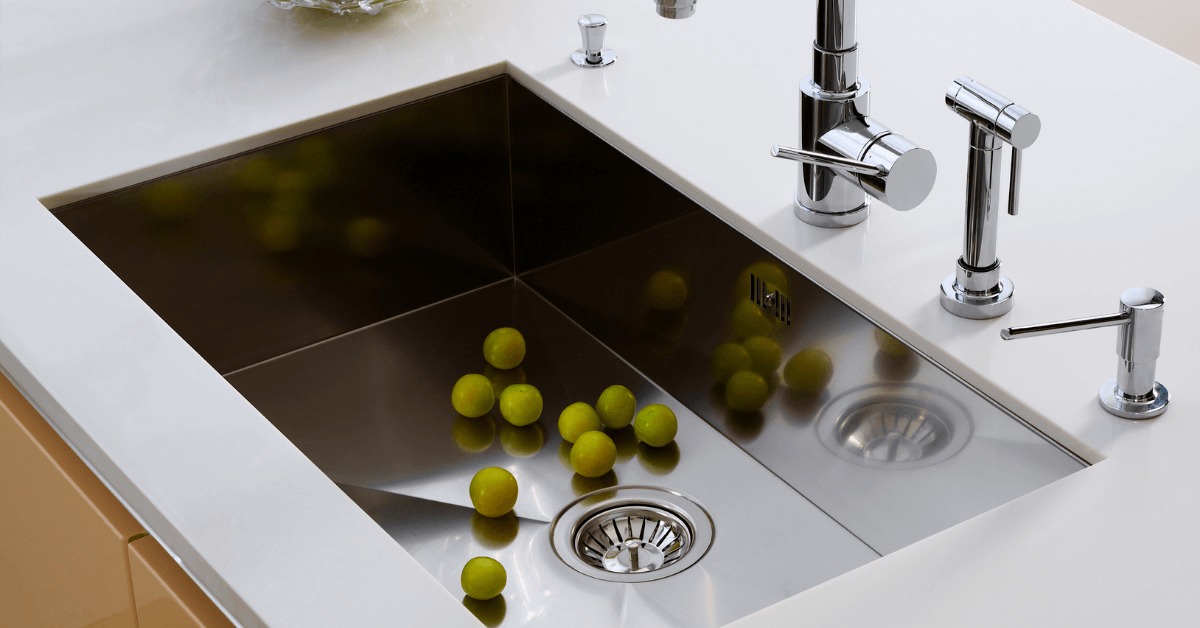 In conclusion, there are many types of clogs that can occur in your kitchen sink, and they can be a major inconvenience. By being mindful of what you put down your sink and regularly cleaning and maintaining your pipes, you can prevent these clogs and keep your kitchen running smoothly. If you do encounter a clog, it's best to address it immediately before it becomes a bigger problem. With these tips, you can keep your kitchen sink clog-free and functional for years to come.
Main keyword: kitchen sink types of clogs
In conclusion, there are many types of clogs that can occur in your kitchen sink, and they can be a major inconvenience. By being mindful of what you put down your sink and regularly cleaning and maintaining your pipes, you can prevent these clogs and keep your kitchen running smoothly. If you do encounter a clog, it's best to address it immediately before it becomes a bigger problem. With these tips, you can keep your kitchen sink clog-free and functional for years to come.
Main keyword: kitchen sink types of clogs



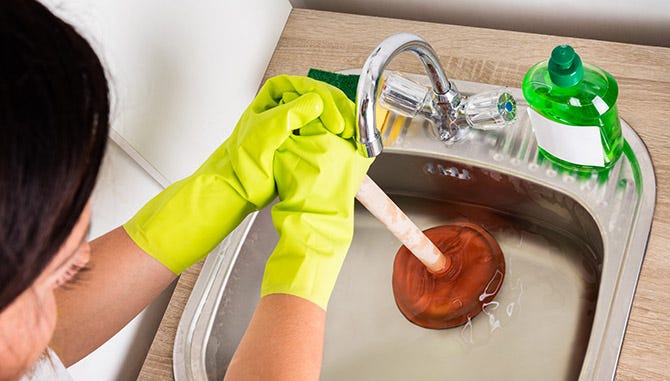


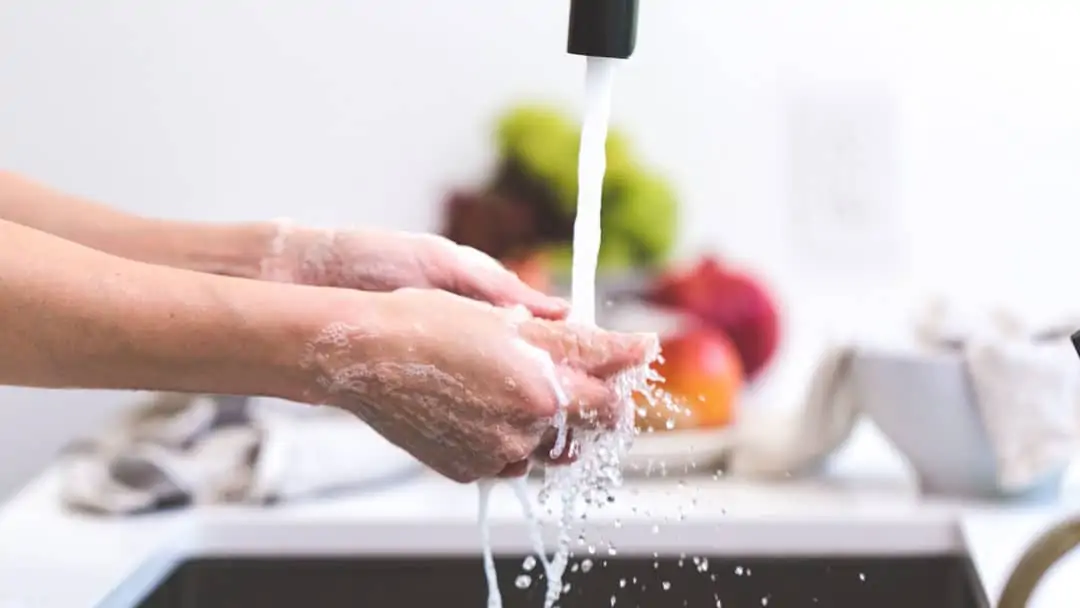

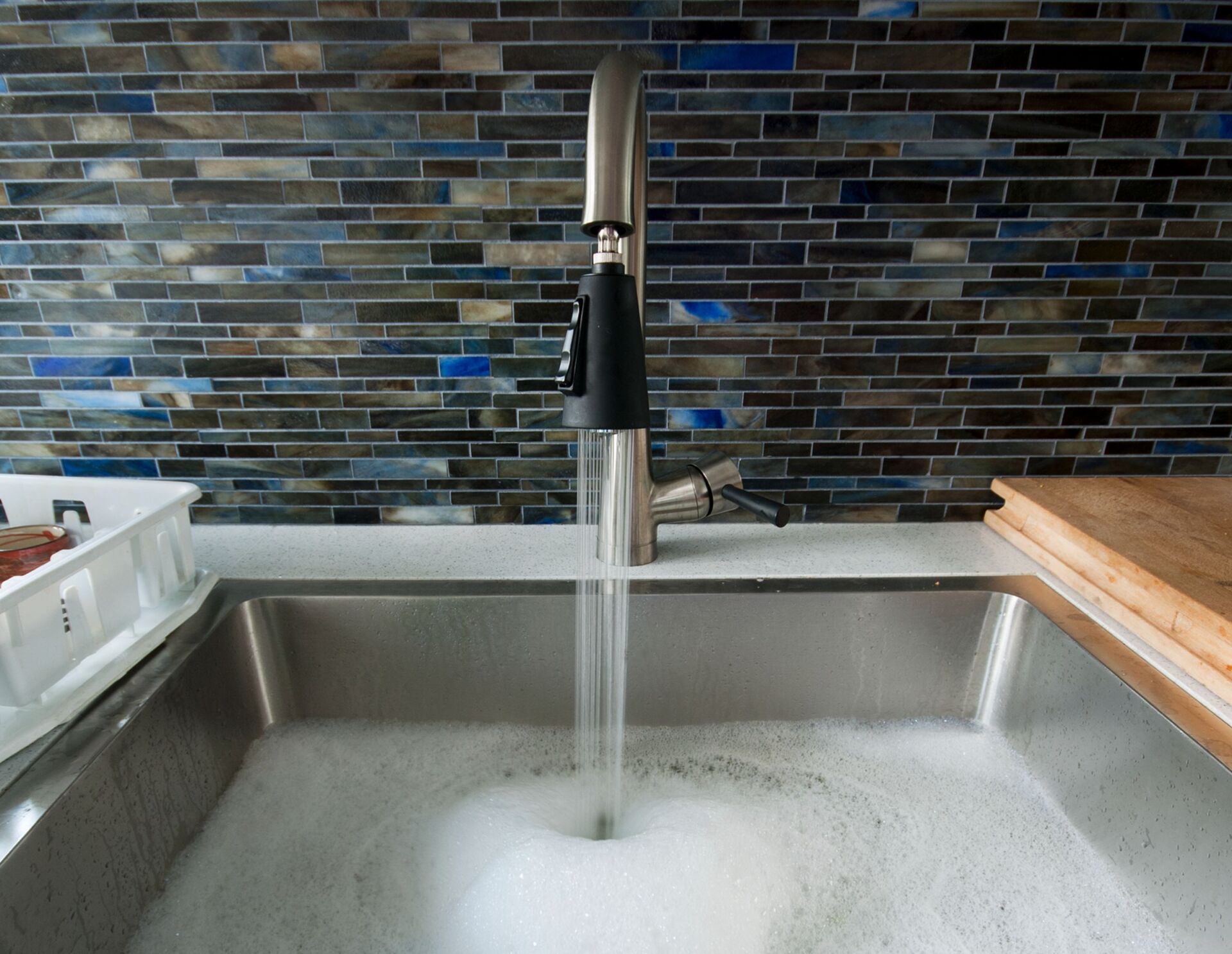
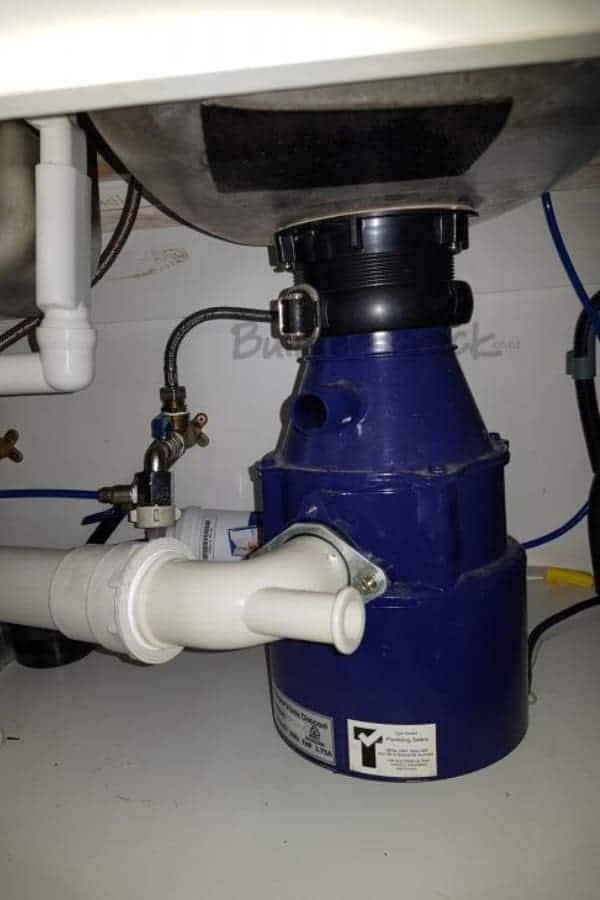



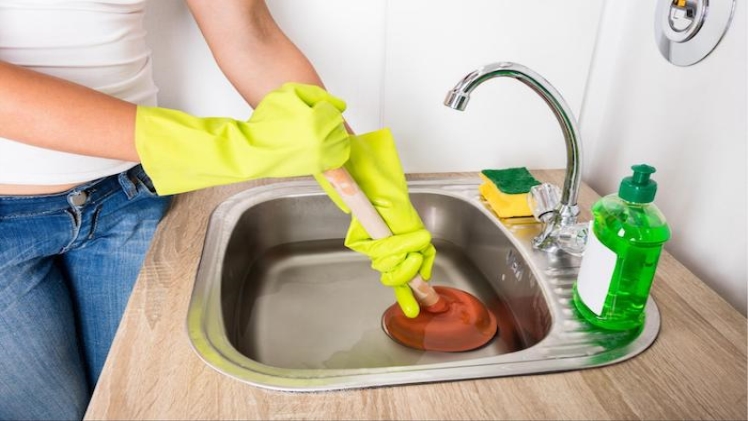





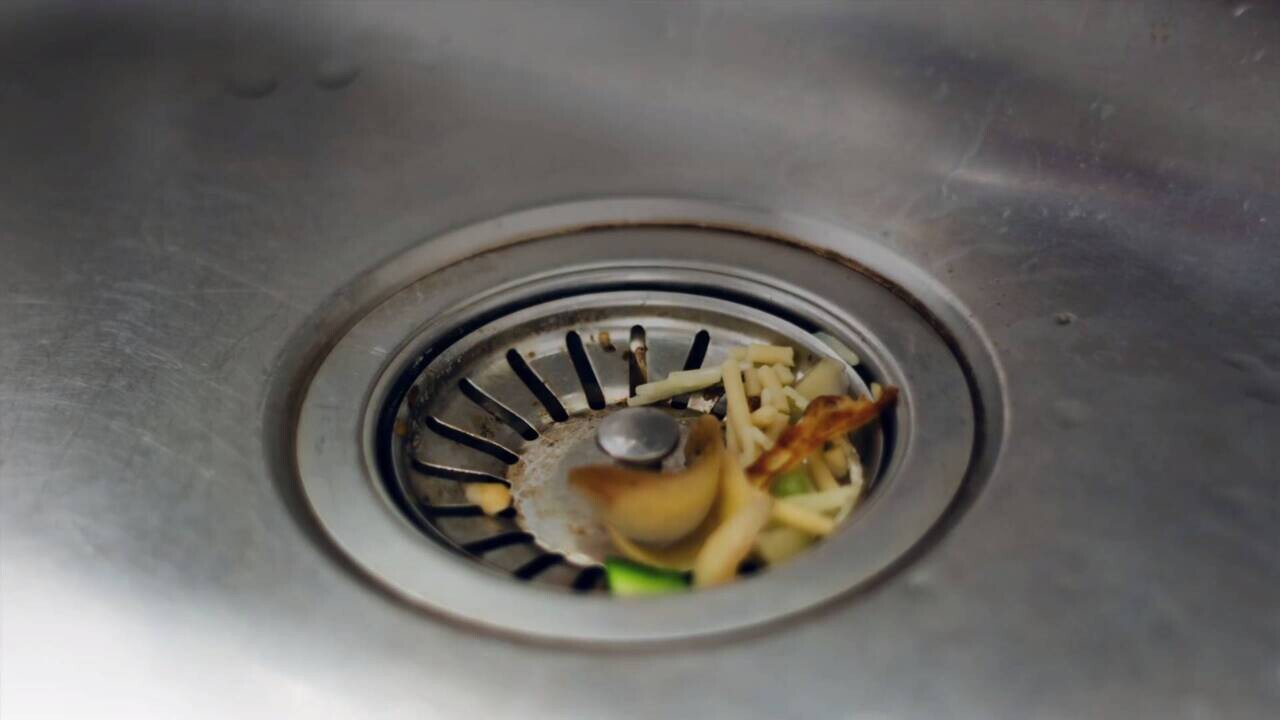
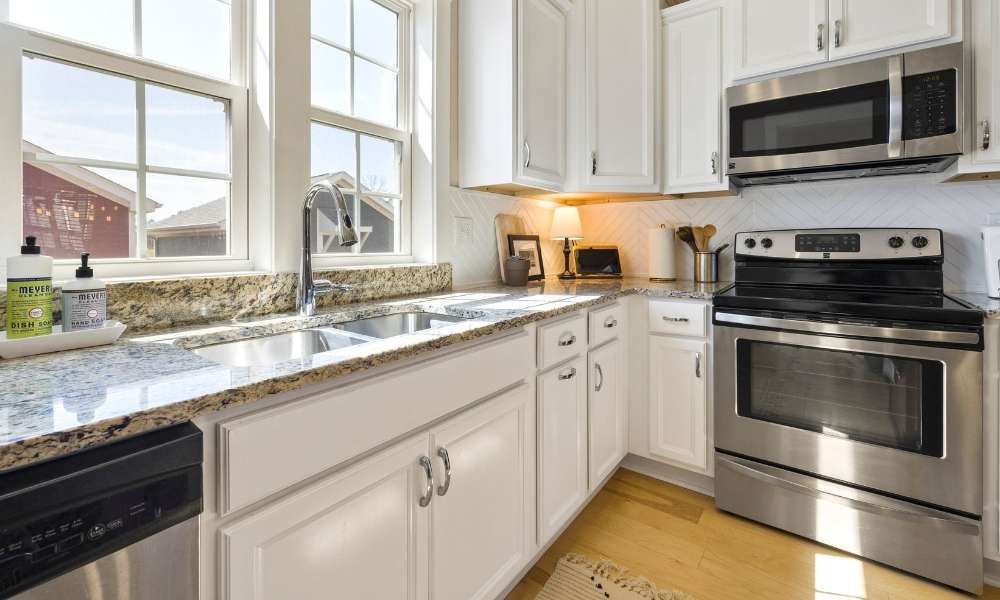




:max_bytes(150000):strip_icc()/Basic-kitchen-sink-types-1821207_color_rev-0b539306b9ef4236a136624ad2a89a4c.jpg)








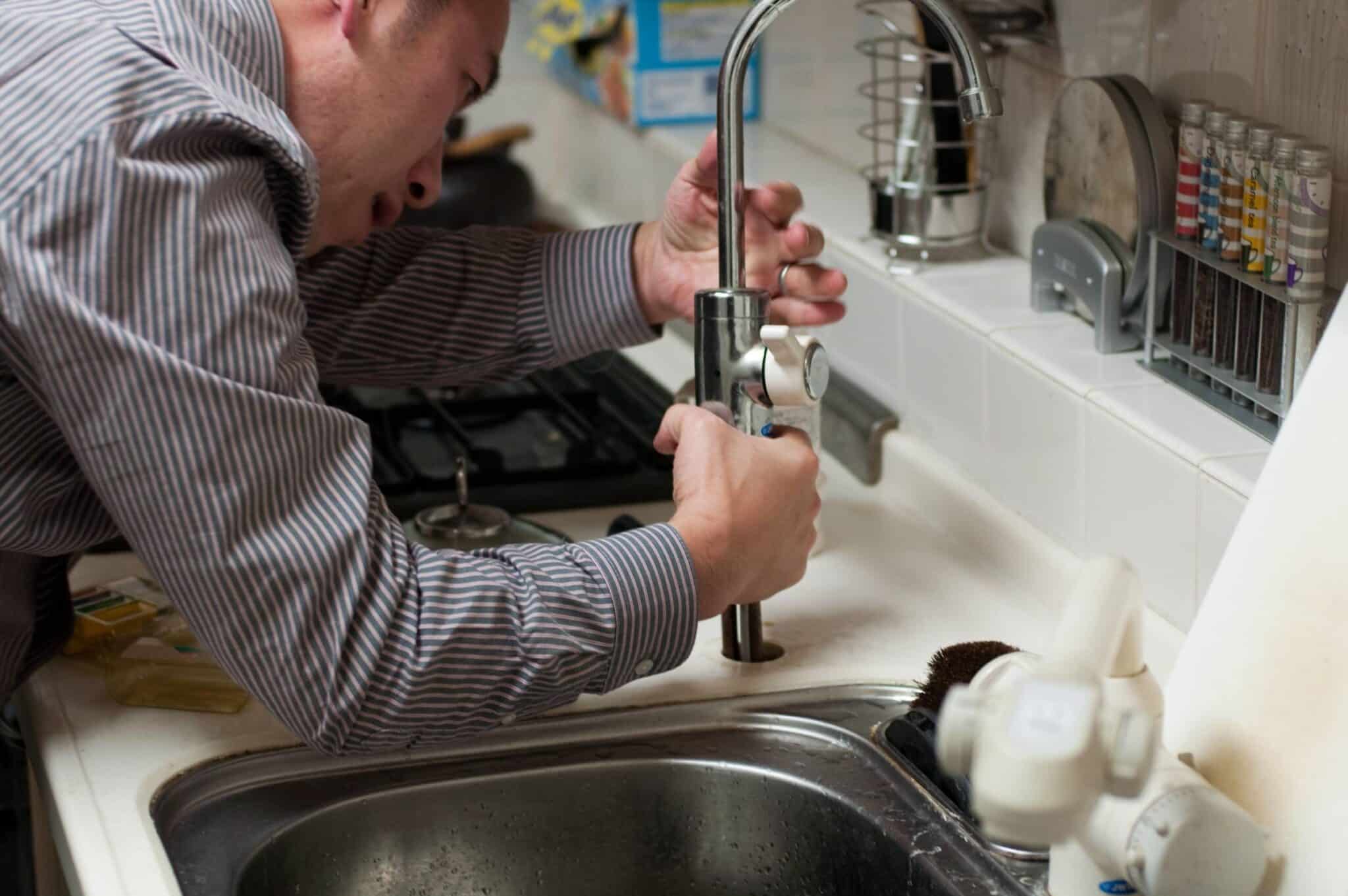

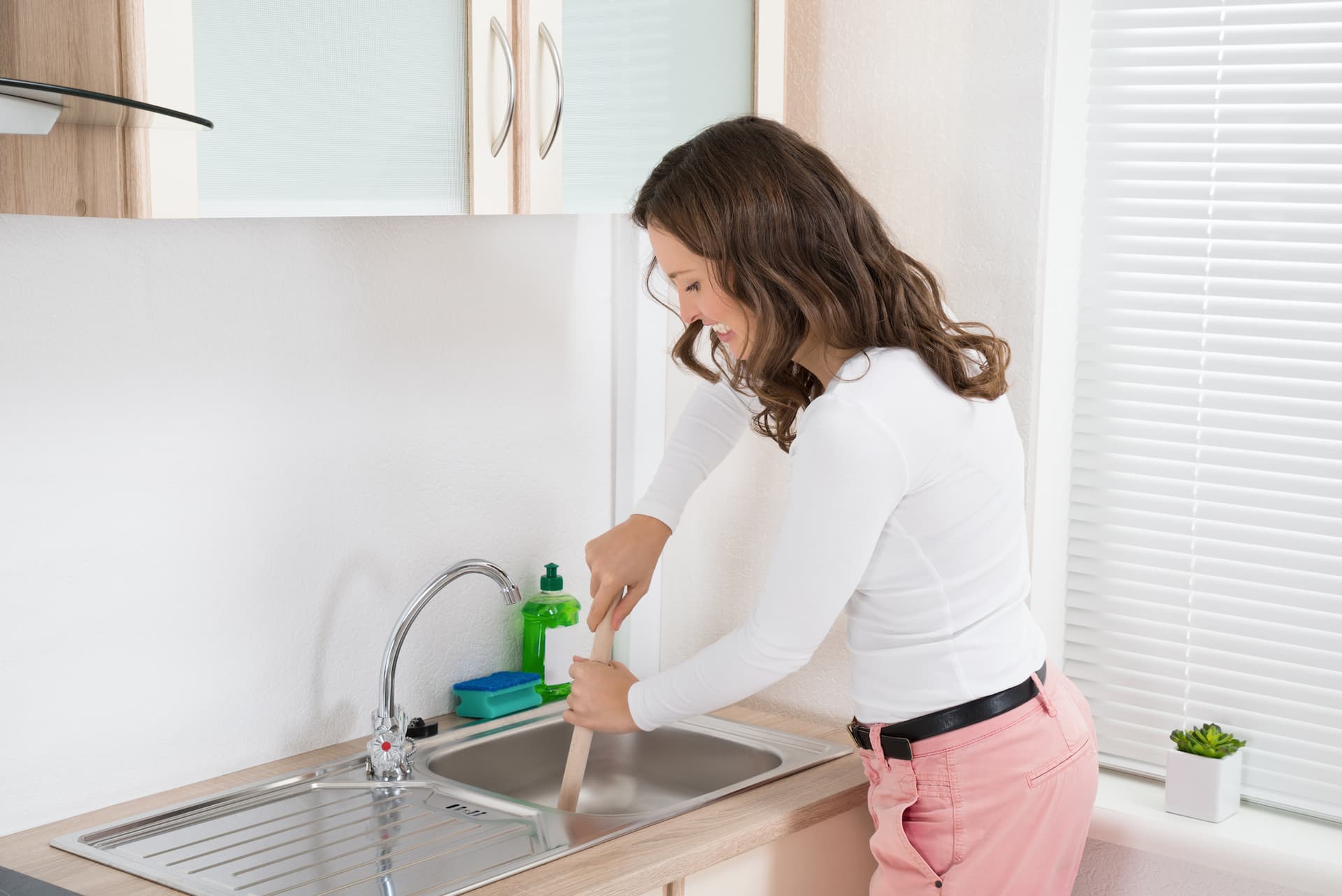


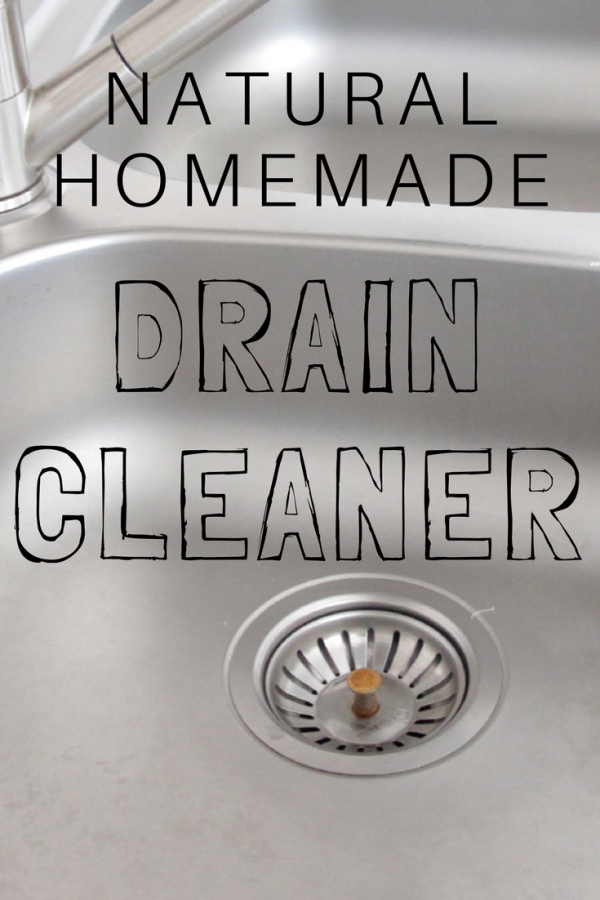








/how-to-install-a-sink-drain-2718789-hero-24e898006ed94c9593a2a268b57989a3.jpg)

